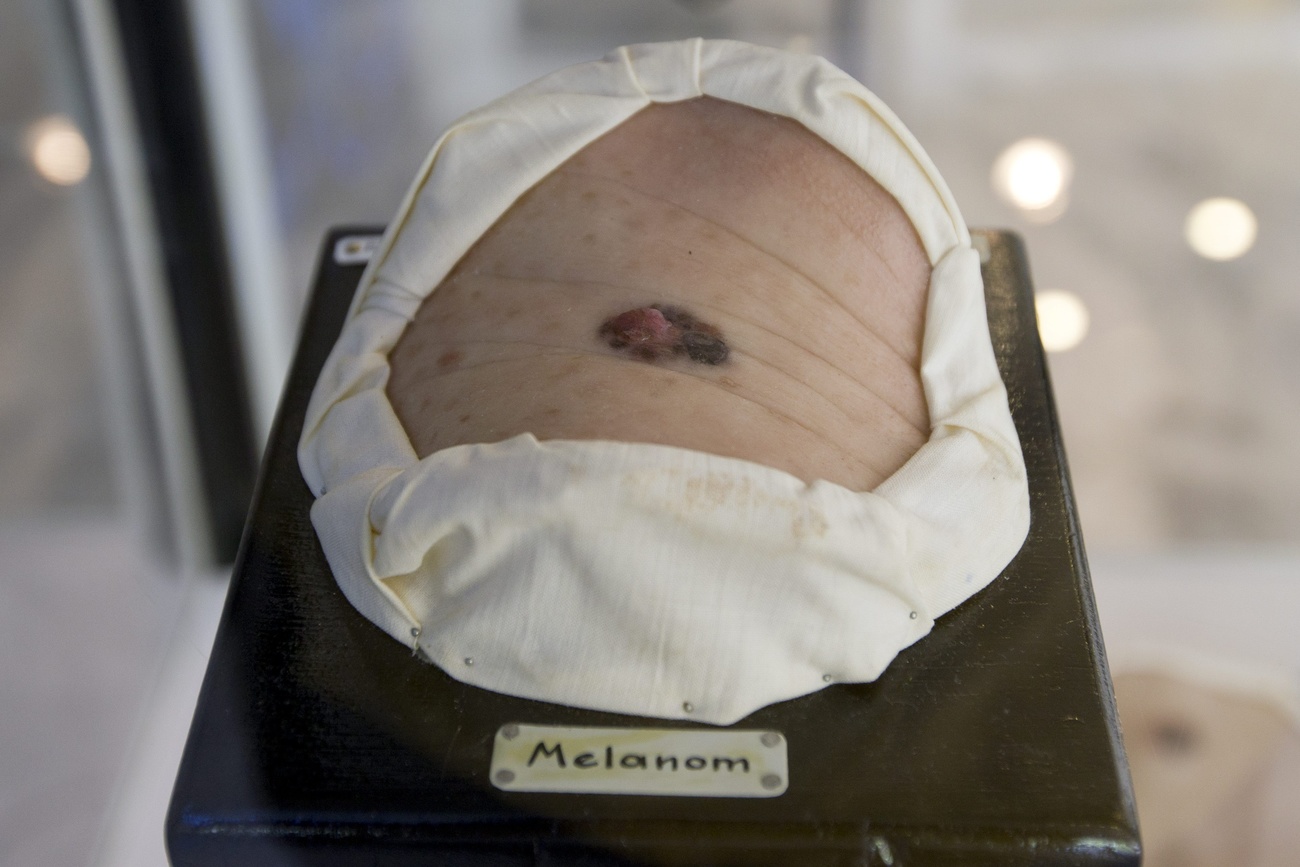
Bern scientists develop promising hydrogel treatment for melanoma

Applied directly to the area where a tumour is located, a hydrogel developed by researchers at the University of Bern activates the body’s own defence system against melanoma, an aggressive form of skin cancer.
The chances of survival among melanoma patients decline when the cancer spreads to other organs. In the last decade, treatments that activate the patient’s immune system with so-called immune checkpoint inhibitors have been successful – but only up to a point.
“Unfortunately, a good half of all patients do not respond” to such treatments, said Mirjam Schenk of the Institute of Pathology.
One particular therapy uses a live bacterium (Bacillus Calmette-Guérin, or BCG) that is not especially effective in patients with metastases (tumour derivates) in their internal organs.
Schenk and her team decided to use components from BCG to develop their heat-sensitive gel and have now shown that in this form, the bacterium can be more effective at controlling tumour growth. The gel they developed together with teams at the Federal Institute of Technology Lausanne (EPFL) and Harbor-UCLA Medical Center in the United States can be easily administered just once. Liquid at room temperature, it becomes viscous at body temperature, so it is able to continually release components of the bacterium. The immune system is thus activated on a sustained basis.
In trials, mice with melanoma showed significantly prolonged survival after treatment with the gel, the University reports on its websiteExternal link. The gel was also able to suppress the formation of metastases in the lungs. The researchers recorded improved immune responses among T cells against melanoma cells in biopsies of melanoma patients who had had BCG therapy.
“Local application of the hydrogel is an effective and safe immunotherapeutic option to reduce metastatic burden and prolong the survival of patients,” said Schenk.
The scientists now plan to conduct clinical trials to test the gel’s efficacy in patients when compared with already approved treatments.

In compliance with the JTI standards
More: SWI swissinfo.ch certified by the Journalism Trust Initiative






























You can find an overview of ongoing debates with our journalists here . Please join us!
If you want to start a conversation about a topic raised in this article or want to report factual errors, email us at english@swissinfo.ch.